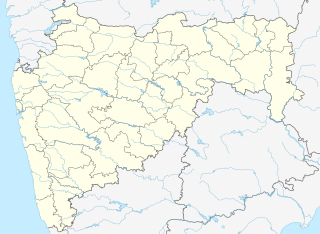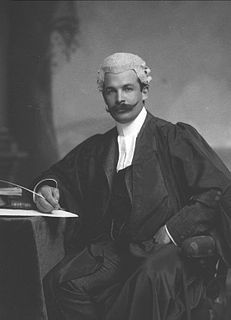A significant proportion of victims of rape or other sexual violence incidents is male. Historically, rape was thought to be, and defined as, a crime committed solely against women. This belief is still held in some parts of the world, but rape of males is now commonly criminalized and has been subject to more discussion than it was in the past.
A rape kit—also known as a sexual assault kit (SAK), a sexual assault forensic evidence (SAFE) kit, a sexual assault evidence collection kit (SAECK), a sexual offense evidence collection (SOEC) kit, or a physical evidence recovery kit (PERK)—is a package of items used by medical personnel for gathering and preserving physical evidence following an allegation of sexual assault. The evidence collected from the victim can aid the criminal rape investigation and the prosecution of a suspected assailant. DNA evidence can have tremendous utility for sexual assault investigations and prosecution by identifying offenders, revealing serial offenders through DNA matches across cases, and exonerating those who have been wrongly accused.
Physicians for Human Rights (PHR) is a US-based not-for-profit human rights NGO that uses medicine and science to document and advocate against mass atrocities and severe human rights violations around the world. PHR headquarters are in New York City, with offices in Boston and Washington, D.C. It was established in 1986 to use the unique skills and credibility of health professionals to advocate for persecuted health workers, prevent torture, document mass atrocities, and hold those who violate human rights accountable.
Statistics on rape and other sexual assaults are commonly available in industrialized countries, and are becoming more common throughout the world. Inconsistent definitions of rape, different rates of reporting, recording, prosecution and conviction for rape create controversial statistical disparities, and lead to accusations that many rape statistics are unreliable or misleading. In some jurisdictions, male-female rape is the only form of rape counted in the statistics. Countries may not define forced sex on a spouse as "rape". Rape is a severely under-reported crime with surveys showing dark figures of up to 91.6% of rapes going unreported. Prevalence of reasons for not reporting rape differ across countries. They may include fear of retaliation, uncertainty about whether a crime was committed or if the offender intended harm, not wanting others to know about the rape, not wanting the offender to get in trouble, fear of prosecution, and doubt in local law enforcement.

Lesbian, gay, bisexual, and transgender (LGBT) rights in Armenia are not legislated in both the legal and social spheres.
Rape in the Philippines is considered a criminal offense. In Philippine jurisprudence, it is a heinous crime punishable by life imprisonment.

Domestic violence is violence or other abuse by one person against another in a domestic setting, such as in marriage or cohabitation. It may be termed intimate partner violence when committed by a spouse or partner in an intimate relationship against the other spouse or partner, and can take place in heterosexual or same-sex relationships, or between former spouses or partners. Domestic violence can also involve violence against children, parents, or the elderly. It takes a number of forms, including physical, verbal, emotional, economic, religious, reproductive, and sexual abuse, which can range from subtle, coercive forms to marital rape and to violent physical abuse such as choking, beating, female genital mutilation, and acid throwing that results in disfigurement or death. Domestic murders include stoning, bride burning, honor killings, and dowry deaths.
The Mongolian Gender Equality Center(MGEC) is a non-government organization based in Ulaanbaatar, Mongolia.

United Nations Security Council Resolution 1960, adopted unanimously on December 16, 2010, after recalling resolutions 1325 (2000), 1612 (2005), 1674 (2006), 1820 (2008), 1882 (2009), 1888 (2009), 1889 (2009) and 1894 (2009), the Council requested information on parties suspected of patterns of sexual violence during armed conflict to be made available to it.
The Association of Women for Action and Research (AWARE) is a not-for-profit organisation that advocates for gender equality and provides critical support services for women in Singapore. It is a registered charity with Institute of Public Character status.
Humsafar Trust is an NGO in Mumbai which promotes LGBT rights. Founded by Ashok Row Kavi in 1994, it is one of the largest and most active of such organisations in India. It provides counselling, advocacy and healthcare to LGBT communities and has helped reduce violence, discrimination and stigma against them. Humsafar Trust is the convenor member of Integrated Network for Sexual Minorities (INFOSEM).

The Survivors Foundation is an NGO located in Guatemala that aims to provide emotional, social and legal assistance to hundreds of women victims of violence, looking for justice and protection. The association is composed of women survivors of violence. It was founded in 2003 by Norma Cruz, women’s rights activist.
Rape in Pakistan came to international attention after the politically sanctioned rape of Mukhtaran Bibi. The group War Against Rape (WAR) has documented the severity of rape in Pakistan, and the police indifference to it. According to Women's Studies professor Shahla Haeri, rape in Pakistan is "often institutionalized and has the tacit and at times the explicit approval of the state". According to lawyer Asma Jahangir, who was a co-founder of the women's rights group Women's Action Forum, up to seventy-two percent of women in custody in Pakistan are physically or sexually abused.
Violence against men (VAM), consists of violent acts that are disproportionately or exclusively committed against men. Men are overrepresented as both victims and perpetrators of violence. Sexual violence against men is treated differently in any given society from that committed against women, and may be unrecognized by international law.
Asuda for Combating Violence against Women is a women's rights NGO operating in Iraqi Kurdistan. The term Asuda means: "providing comfort".

Violence against women in India refers to physical or sexual violence committed against Indian women, typically by a man. Common forms of violence against women in India include acts such as domestic abuse, sexual assault, and murder. In order to be considered violence against women, the act must be committed solely because the victim is female. Most typically, these acts are committed by men as a result of the long-standing gender inequalities present in the country.
Violence against women in India is actually more present than it may appear at first glance, as many expressions of violence are not considered crimes, or may otherwise go unreported or undocumented due to certain Indian cultural values and beliefs. These reasons all contribute to India's Gender Inequality Index rating of 0.524 in 2017, putting it in the bottom 20% of ranked countries for that year.
Bangalore is a multicultural city and has experienced a dramatic social and cultural change with the advent of the liberalization and expansion of the information technology and business process outsourcing industries in India. With much expatriate population in the city, Bangalore is slightly more relaxed.
Vrinda Grover is a lawyer, researcher, and human rights and women's rights activist based in New Delhi, India. As a lawyer she has appeared in prominent human rights cases and represented women and child survivors of domestic and sexual violence; victims and survivors of communal massacre, extrajudicial killings and custodial torture; sexual minorities; trade unions; and political activists. Focused on the impunity of the state in relation to human rights violations, her research and writing inquires into the role of law in the subordination of women; the failure of the criminal justice system during communal and targeted violence; the effect of 'security' laws on human rights; rights of undocumented workers; challenges confronting internally displaced persons; and examines impunity for enforced disappearances and torture in conflict situations. Time magazine identified her as one of the 100 most influential people in the world in 2013.
After a sexual assault or rape, victims are often subjected to scrutiny and, in some cases, mistreatment. Victims undergo medical examinations and are interviewed by police. If there is a criminal trial, victims suffer a loss of privacy and their credibility may be challenged. Victims may also become the target of slut-shaming, abuse, social stigmatization, sexual slurs and cyberbullying.
Tulir - Centre for the Prevention and Healing of Child Sexual Abuse (CPHCSA) is an NGO working on child sexual abuse awareness and rehabilitation, based in Chennai, India. In Tamil, the word Tulir means the first tender leaves of a plant symbolising children and "the belief in the resilience and resurgence of the human spirit." The NGO is run by Vidya Reddy.











